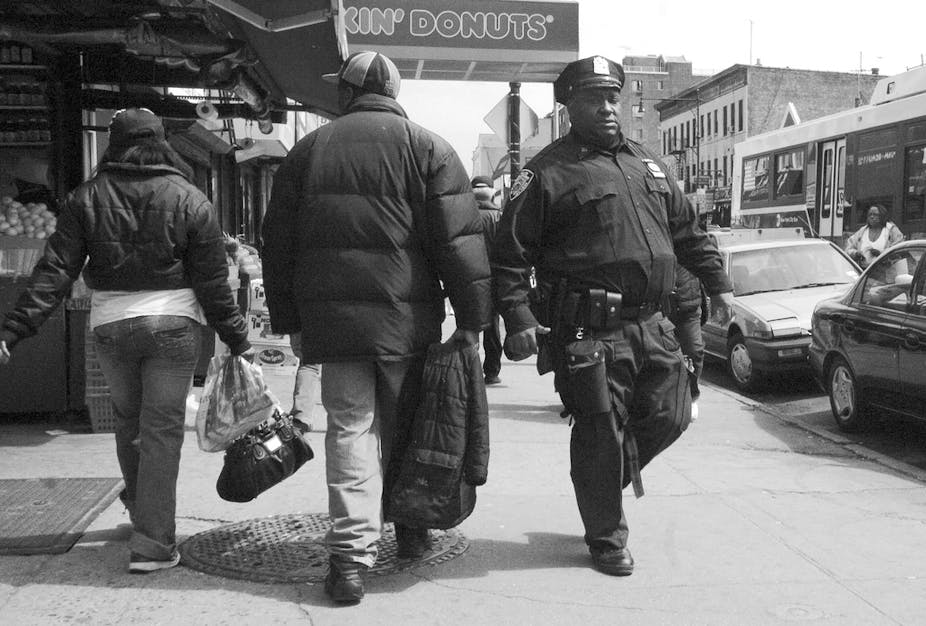Widespread sleep deprivation is driving police into rage, danger, and incompetence, with chronically fatigued officers self-reporting high rates of uncontrolled anger towards suspects and citizens, serious administrative errors, falling asleep while driving, and other hazardous behaviours.
These are the alarming findings of a two-year study of almost 5000 police officers in the US and Canada. The research, led by Associate Professor Shantha Rajaratnam, from Monash University’s School of Psychology, Psychiatry and Psychological Medicine, is published today in the Journal of the American Medical Association. In light of the findings, Professor Rajaratnam has urged police forces to screen and treat their officers for sleep disorders in order to reverse their deteriorating health and behaviour.
His team found that more than 40% of police had a sleep disorder (predominantly sleep apnea, insomnia, or shift work disorder), with most of these conditions previously having been undiagnosed or largely untreated. “Those who screened positive for a sleep disorder were significantly more likely to report displaying uncontrolled anger towards a citizen or suspect”, the study finds, with the chronically fatigued police generating more complaints from citizens about their behaviour than officers who sleep well.
Almost half of the police in the study reported falling asleep while driving, with a quarter reporting that this happens once or twice each month. Sleep problems in police were also associated with an above average incidence of a cluster of compounding health problems including cardiovascular disease, diabetes, hypertension, strokes, obesity and depression. Overnight work and rotating shift work do damage, according to the researchers, impairing heart and metabolic functions even in otherwise healthy people.
Professor Leon Lack, a sleep specialist at Flinders University’s School of Psychology, said that the increased levels of obesity and rage in sleep-deprived police were undesirable but predictable, given the probability they are missing out on the dream states that occur in the latter stages of a good night’s sleep. This Rapid Eye Movement phase, is “a very different state of sleep from the deep sleep [that precedes it]. The body is highly alerted and aroused during this time even though people are still asleep. It’s sort of like you’ve got your car in neutral and you gun the engine: you don’t go anywhere; you’re still asleep, but your brain and your body’s physiology is quite revved up during that period of time,” Professor Lack said.
The purpose or function of REM-states remains mysterious but missing out on them is “not conducive for maintaining a phlegmatic equilibrium”, Professor Lack said. “If people are restricted from that type of sleep they show increased drive states - hunger and sex drive - and they get irritable very easily. You do tend to become what’s called more ‘emotionally labile’ or emotionally variable. That’s not a good condition to be in for police officers. In other words, they could get frightened or startled more easily during this period, or they could become enraged more easily,” he said. While other shift workers may not be armed, they would in line for similar health and behavioural problems, Professor Lack said: “Shift work almost always ends up in getting inadequate sleep in the long run.”
The coffee and donut stereotype of police could be explained by the fatigue, Professor Lack said. “Coffee would counteract the sleepiness, and people who are sleep deprived on a chronic basis tend to be attracted to high sugar, high fat-content foods. That’s not good for the waistline, especially if police spend all their time in a car, driving around. I wouldn’t be at all surprised if the average weight of police officers is greater than normal, and if that’s the case then they have increased susceptibility to sleep apnea.”
Professor Rajaratnam said that the vicious circle could be broken down by police forces paying attention to their officers’ health and weight, screening and treating sleep disorders, and giving officers exercise-time during shifts. One US force that made time for exercise during shifts had a significantly lower than average rate of sleep apnea, he said.
Yet, they were an exception: “Sleep disorders are highly prevalent in North American police - the extent remains to be determined in Australian police - and these sleep disorders are associated both with signigicant co-morbid health conditions such as diabetes, cardiovascular disease, and depression, and with what we found in the follow-up part of our study: occupationanal safety and performance,” Professor Rajaratnam said. “What we should be thinking about are intervention programs as a part of occupational health and safety,” he said.
The Police Association of NSW was invited to comment but had not responded by the time of publication.

